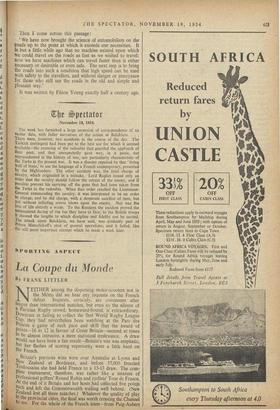Xbe fipertator
November 18, 1854.
The week has furnished a large accession of correspondence of an earlier date, with fuller narratives of the action at Balaklava. . . . There were, however, two accidents in the course of the day. The Turkish contingent had been put to the best use for which it seemed available—the manning of the redoubts that guarded the apptoach of their post; and they unexpectedly gave way, in a panic, not Unprecedented in the history of war, nor particularly characteristic of the Turks in the present war. It was a disaster repaired by that living wall of brass,' to use the language of a French contemporary, presented by the Highlanders. The other accident was, the fatal charge of cavalry, which originated in a mistake. Lord Raglan issued only an artier that the cavalry should follow the retreat of the enemy, and if Possible prevent his carrying off the guns that had been taken from the Turks in the redoubts. When that order reached the Lieutenant- General commanding the cavalry, it was interpreted to be an order to charge; and he did charge, with a desperate sacrifice of men, but not without inflicting severe blows upon the enemy. Nor was the loss of life entirely a waste. To the Russians the incident proved the Unmeasured daring of the foe they have-to face; to the British troops it showed the lengths to which discipline and fidelity can be carried. The attack upon Balaklava, we have said, was evidently part of Prince Menschikoff's plan of general operations; and it failed, like the still more important attempt which he made a week later.










































































 Previous page
Previous page